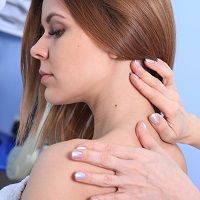What Are the Most Unnecessary and Overused Procedures in Dermatology?
The American Academy of Dermatology (AAD) recently released new recommendations encouraging physicians to thoroughly inform patients of their options when it comes to dermatologic medications and procedures.

The American Academy of Dermatology (AAD) recently released new recommendations encouraging physicians to thoroughly inform patients of their options when it comes to dermatologic medications and procedures.
The AAD found that patients more often than not needed to be coached to avoid care that could be unnecessary for them.
Mark Lebwohl, MD, FAAD, AAD President, remarked in a news release, “The American Academy of Dermatology and its members are committed to serving as good stewards of limited health care resources, and we want to empower our patients to make informed health care decisions. By identifying procedures that may not be necessary, the Academy’s new Choosing Wisely list can help patients with skin, hair and nail conditions start a conversation with their dermatologist about what tests and treatments are right for them.”
The Academy’s Choosing Wisely list was released after the 2015 Summer Academy Meeting in New York and included the following key recommendations from a group of board-certified dermatologists:
1. Don’t use systemic (oral or injected) corticosteroids as a long-term treatment for dermatitis.
2. Don’t use skin prick or blood tests such as the radioallergosorbent test (RAST) when routinely evaluating for eczema.
3. Don’t routinely use microbiologic testing when evaluating and managing acne.
4. Don’t routinely use antibiotics to treat bilateral swelling and lower leg redness unless there’s clear evidence of infection.
5. Don’t routinely prescribe antibiotics for inflamed epidermal cysts.
6. Until specifically confirming fungal infection, don’t prescribe oral antifungal therapy for suspected nail fungus.
7. Don’t perform sentinel lymph node biopsies or other diagnostic tests when evaluating early, thin melanoma, as they won’t necessarily improve survival rates.
8. Mohs micrographic surgery should not be used to treat uncomplicated, nonmelanoma skin cancer particularly less than 1 centimeter on the trunk and extremities.
9. Unless there’s true clinical evidence of infection, oral antibiotics should not be used to treat atopic dermatitis.
10. Don’t routinely use topical antibiotics on surgical wounds.
The dermatologists (all longtime members of the AAD) tapped into their own experiences to identify treatments that had the highest rates of misuse/overuse and also projected needs for quality improvement.